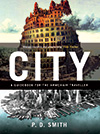British nukes were protected by bike locks
16 November 2007 | Atomic Age, Doomsday Men, Dr Strangelove, terrorism, Trident, WMD, Zuckerman | 6 comments
There was a chilling report on Newsnight yesterday. Their Science Editor, Susan Watts, has found out that until the early days of the Blair government the RAF's nuclear bombs were armed by turning a bicycle lock key.

It sounds scarcely believable but it's true - as I found out writing Doomsday Men, truth is often stranger than fiction. Forget about all the sophisticated electronic fail-safe locks you see in Hollywood movies preventing someone from detonating a nuclear bomb. Until 1998 the UK's nukes could be armed with a small metal key. So if one had fallen into the hands of terrorists there were no safeguards - a combination lock, for instance - to prevent them from detonating it.
Equally disturbing is the fact that Newsnight has discovered that UK submarine commanders have the ability to launch their nuclear missiles without authorization from the British Prime Minister. France and the United States introduced a fail-safe system of release codes to prevent a general from starting World War III, as happens in Dr Strangelove.
According to Newsnight, as early as 1966 an attempt was made to introduce such safeguards for British nuclear weapons. The Chief Scientific Adviser, Solly Zuckerman, told the Defence Secretary, Denis Healey: "the Government will need to be certain that any weapons deployed are under some form of 'ironclad' control".
But secret documents from the time reveal that the Royal Navy prevented this from happening. They argued that officers of the Royal Navy could be trusted with these ultimate weapons of mass destruction: "It would be invidious to suggest... that Senior Service officers may, in difficult circumstances, act in defiance of their clear orders".
Given that the UK plans to spend some £20 billion updating its Trident submarine missile system, maybe our government should also think about introducing some twenty-first century safeguards to protect us all from the misuse of these terrible weapons.
You can read a summary of Newsnight's findings and watch part of Watts' report here.


Kaytie | 16 November 2007
I keep my nukes secure with rubber band chains and the occasional bungee cord.
LiteraryMinded | 16 November 2007
Truth certainly is much more frightening than fiction!
Thanks for this post P.D.
PD Smith | 17 November 2007
Bungee cord? I wonder if Her Majesty's Armed Forces had thought of that...
indeterminacy | 27 November 2007
They should use the system that my Chrysler had. Without the remote control activating device, the key to the ignition won't work. If the remote's batteries dies, there's nothing you can do. No way to start the car even if you have the key. You might be parked in the Sahara, you're out of luck. You need to have it towed. We had to get it towed once out of a parkhouse once. There's no way around this system - it's pretty secure.
PD Smith | 28 November 2007
sounds much better than a bike key!
Ben Dickson | 19 February 2018
Well, let's think about this. It's worked, hasn't it. The captain is in charge of a weapon of extreme destruction even without the missiles.
I can see the safeguards failing and getting in the way just as likely as they protect anything. Physical isolated security seems to be best way. It's better than the security theater that giving it remote access. To launch a nuke as it is now, you would need to do an insane Mission-Impossible feat. If it's even connected to the web, you enable the possibility of launching it remotely.